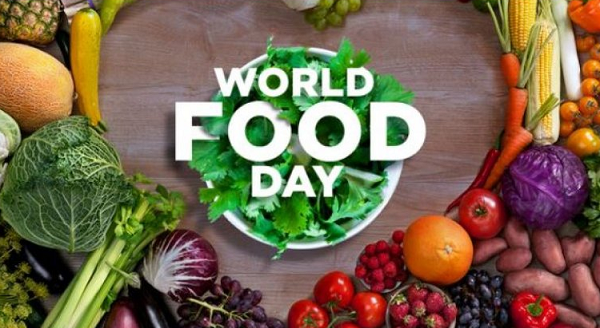World Food Day was marked globally last Sunday, although in Ghana a flag-hoisting ceremony was held in Sogakope last Friday to mark the day.
The day is meant to create awareness of food shortage, revive the food system and sustain nutritional food across the globe.
Indeed, the importance of the day cannot be overemphasised.
Food provides substances that give energy for activity, growth and all functions of the body. It also provides materials for the repair of the body and for keeping the immune system healthy.
In fact intellectual disability in children has been partly traced to improper diet of the mother during pregnancy. For both the unborn child and the person who is living, good food prevents infections and other illnesses.
Food availability, therefore, has a direct relationship with national and, consequently, global development. For sure, there has not been any civilisation and prosperity in the history of man that food and agriculture have not played key roles.
Yet global agriculture faces multiple challenges. The smaller rural labour force, soil quality degradation and climate change will not permit the world to produce to feed a global population that is forecast to reach over nine billion by 2050.
We are gladdened, however, that Ghana has not fared badly in food production and food security. We may not have reached the production levels we need, but we have been spared the famine and food insecurity that have bedevilled other parts of the world.
Data indicates that more than a billion people in developing countries suffer from chronic hunger.
As the world focuses on ending hunger, achieving food security and improved nutrition and promoting sustainable agriculture by 2030 through the UN Sustainable Development Goal 2, the Daily Graphic is gratified to note that the role of agriculture in promoting pro-poor growth has fortunately been attracting renewed attention in Ghana.
The Planting for Food and Jobs initiative has, in the past few years, helped increase food production.
Unfortunately, a number of bottlenecks are hampering sustaining the gains made in recent times. Perennial floods in many parts of the country and the canker of illegal mining that threatens our water bodies and the health of the population are issues that must be tackled head-on if we are to ensure food security.
If for nothing at all, the lessons from the COVID-19 pandemic and the Russia-Ukraine war should teach us to work towards food self-sufficiency, as the growing pressure on global food systems constitutes a critical development challenge that could create an increasing risk for all.
Dealing with the challenges to agriculture, therefore, must be the responsibility of every member of society. We thus see the theme for this year’s commemoration of World Food Day: “Leave no one behind: Better nutrition, a better environment and a better life”, as very apt.
The Daily Graphic joins in rallying humanity to prioritise food and nutrition security as a collective responsibility to help the most vulnerable people to recover and make food systems more sustainable and resilient to shocks.
We must use current global challenges as a call to action targeted at increasing food production, building the required resilience and maintaining the appropriate strategies to promote solutions to intractable problems of food production.
We must particularly take a critical look at the fishing industry, whose players have expressed fear over its extinction. It is also interesting that at the same time women in agriculture have appealed for support in terms of farming inputs and fishing gear to enable them to expand their businesses. Our hope is that this appeal will not fall on deaf ears.
The 2022 World Food Day mustn’t be allowed to pass with just ceremonies but must be used to implement workable policies and take actions that will fully unlock the potential of the agricultural sector to address the food needs of the country.

